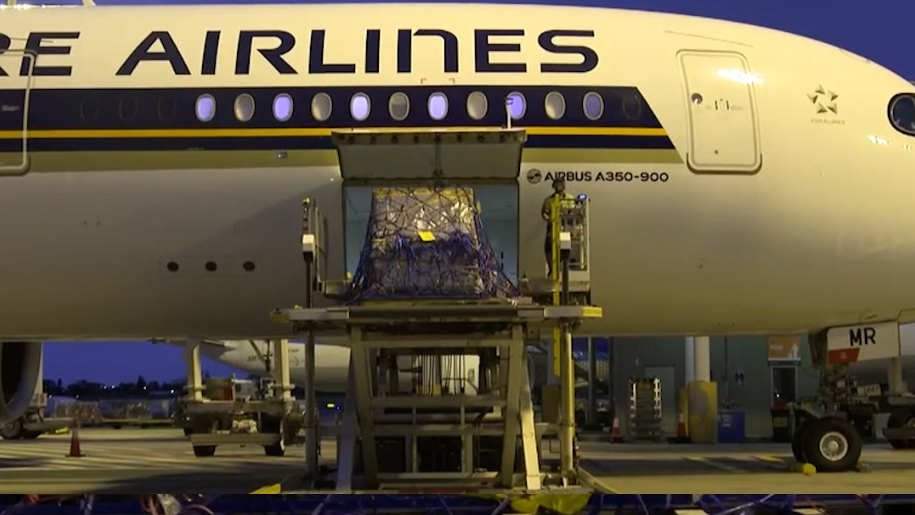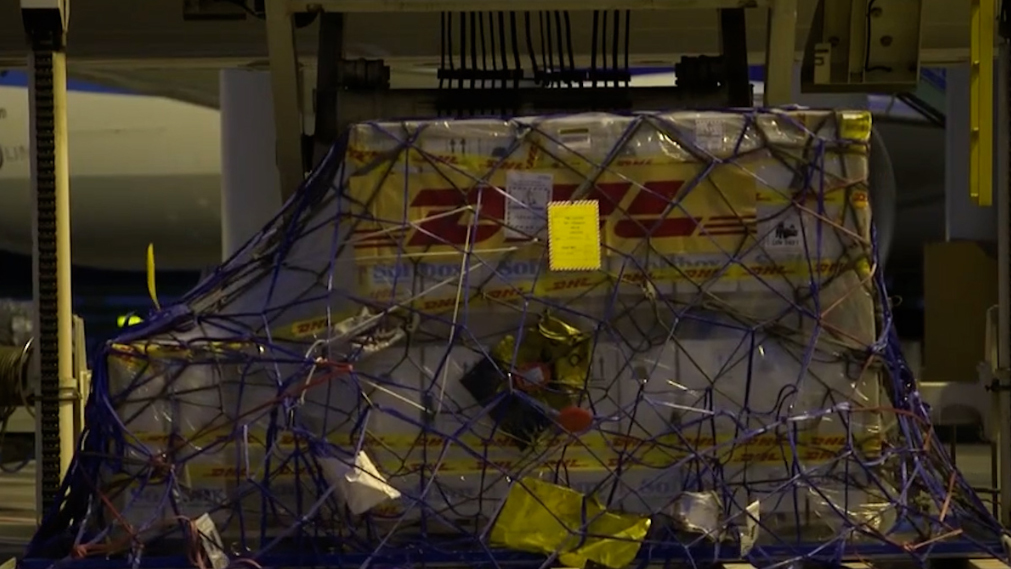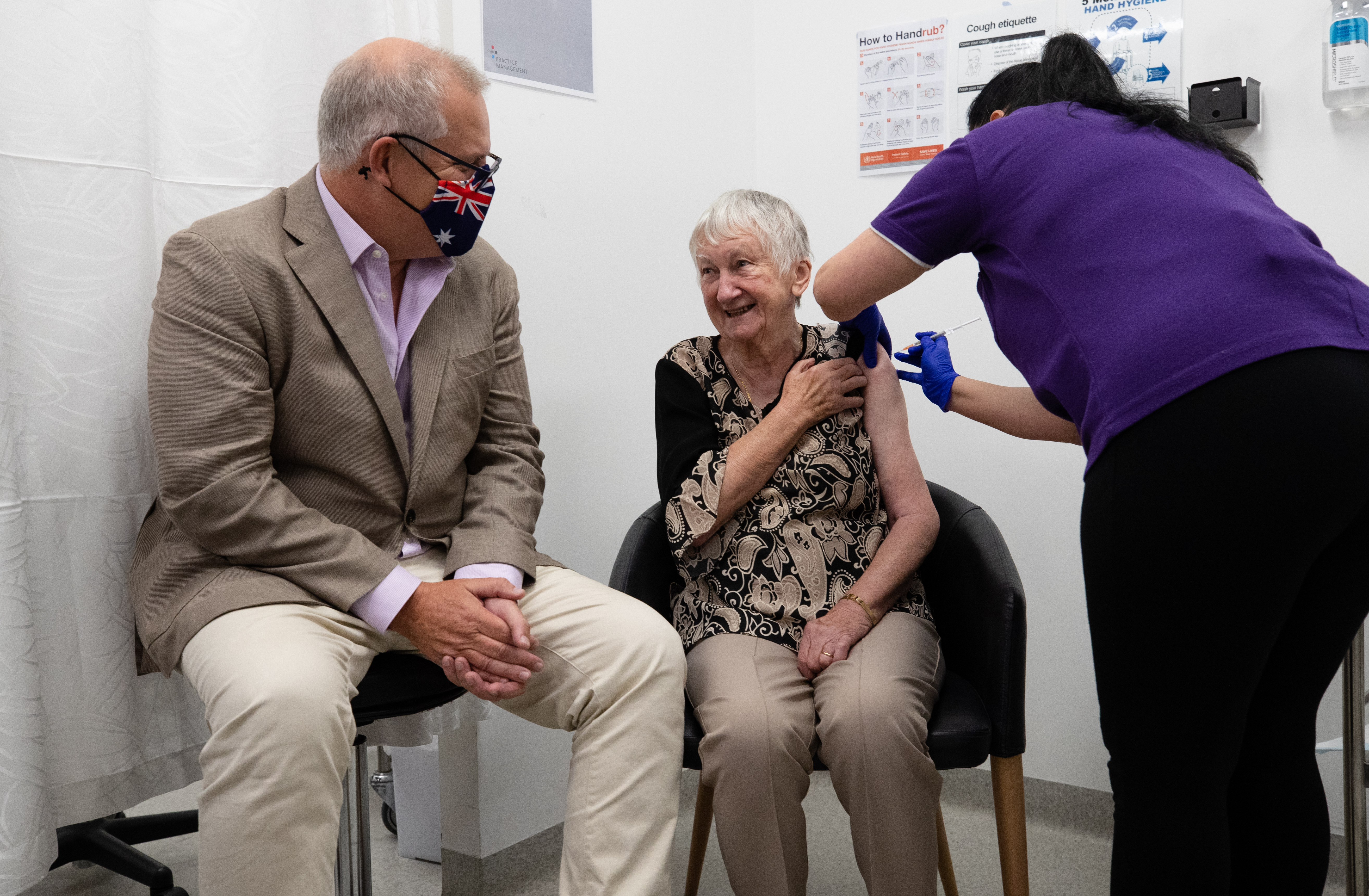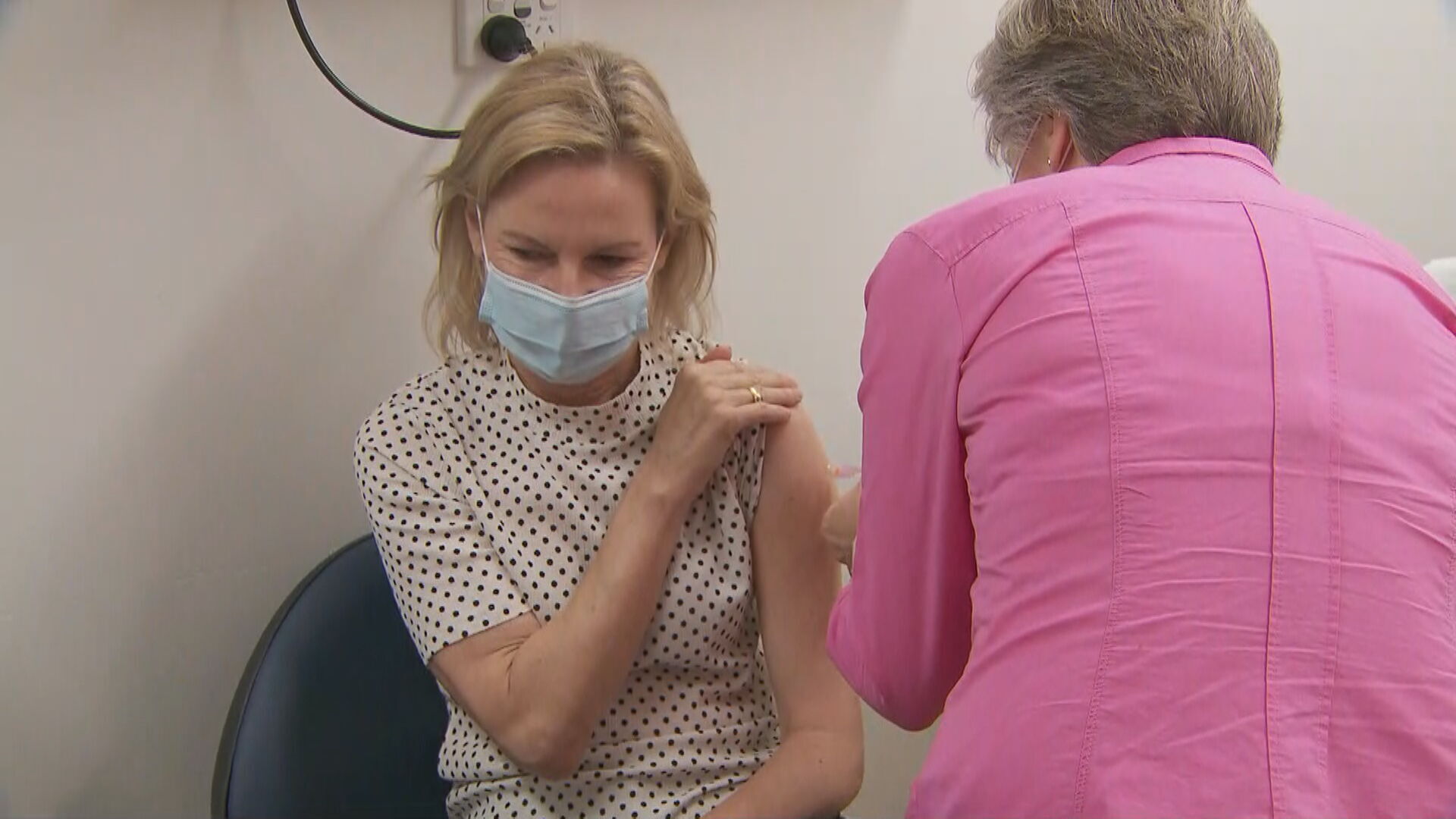A second shipment of the Pfizer vaccine has arrived in Australia on board a Singapore Airlines flight that touched down in Sydney early this morning.
The cargo will now go into cold storage, before being batch tested and then sent to vaccination hubs across the country to bolster the national COVID-19 jab rollout.
Health Minister Greg Hunt confirmed the arrival and said it was the first of two to land in the next week.
LIVE UPDATES: Hopes international travel will return within months

"This is the start of a program that will help protect lives, save lives across Australia and give people a pathway to returning to a more normal lifestyle," Mr Hunt said in Canberra this morning.
In total there will be 280,000 additional doses of the Pfizer vaccine to arrive in Australia between the two shipments.

That includes 166,000 doses to have arrived today, with 120,000 to land next week, he said.
"We'll make 80,000 doses available over the coming week, 50,000 to the states, 30,000 to aged care through the Commonwealth," he said.
"It's important that we have consistency, we're always provisioning for the second doses."
Mr Hunt said he had spoken to the CEO of Pfizer overnight and said the company had provided "good, strong confidence and forward guidance of their continued deliveries".

"And that just gives Australians confidence in terms of the effectiveness of vaccines and confidence in terms of the reliability of supply."
The Pfizer vaccine is the only vaccine currently being used here, with the Federal Government purchasing 10 million doses.
Mr Hunt said the locally-made AstraZeneca vaccination remained "on track" for a March rollout.
"That's very heartening," he said.
The first Victorian to receive the Pfizer jab was Professor Rhonda Stuart, the head of infection prevention at Monash Health. She also treated the state's first coronavirus patient, in January 2020, and the last patient to be discharged from hospital in November.
Professor Monash has welcomed the rollout of the Pfizer jab, praising it as "a huge step forward".
"All frontline health care workers have gone through a lot in the last 12 months and we have seen lots of patients come into the hospital, we've looked after them and we've seen some deaths and we've had to deal with our own fear of coming down with the virus as well," Professor Stuart told Today.

"It's been a huge year. To have a vaccine that we can use to prevent ongoing disease and prevent our hospitals going forward is a huge step forward."
She is urging everyone to get the vaccination when it becomes available to them.
"It's certainly going to change the way we need to think about COVID going forward and that's really important. What we need is everybody to come on board and get vaccinated," Professor Stuart said.
"We've now got this tool that we can use against COVID. And it's not just about preventing people dying from COVID, it's about preventing people from getting sick with COVID.
"Preventing them coming into our hospitals and overwhelming the health system so we can use our hospitals to treat other important things like heart disease and cancer, things that aren't being looked after well overseas because they're overwhelmed with COVID.
"It's going to change the way our hospitals work. It can also change the way we live in our public lives. We won't need to go into lockdowns anymore.

"We might be able to have holidays and potentially travel overseas again. So, it's a really big step to see light at the end of the tunnel."
Victoria hopes to vaccinate 12,000 people this week and Professor Stuart says she and other health professionals were prepared.
"We are ready to vaccinate when the vaccine comes to us. As soon as the vaccine hits our hub, our vaccine hub, we will be vaccinating all our health care workers and then rolling out to the public."
It comes as leading epidemiologists think international travel could be back on the cards within months, thanks to the vaccine rollout.
from 9News https://ift.tt/3aHdsV0
via IFTTT


0 Comments